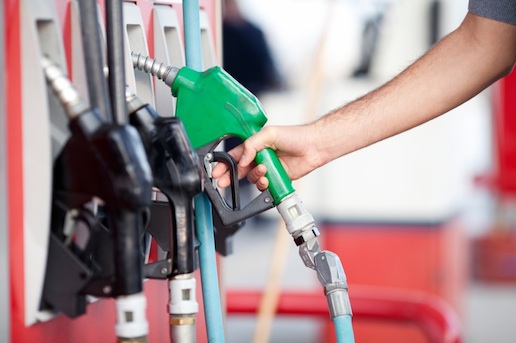
Cars that run on alternative fuels like biofuels and liquefied natural gas can cost less, cut emissions, and reduce dependence on foreign fuels, according to a report by MIT’s Energy Initiative (MITEI).
The report looked at the future of natural gas, biofuels and gasoline as fuels for light-duty vehicles over the next two to three decades. Specifically, it studied both “bi-fuel” vehicles able to run on either gasoline or natural gas, and “flex-fuel” vehicles able to run on a blend of gasoline, ethanol or methanol (or all three simultaneously).
The report is based on a 2012 MITEI symposium that brought together experts and policymakers to discuss the prospects for alternative fuel technologies for light-duty vehicles and how an expanded alternative fuel market might be achieved.
“Alternative fuel vehicles could have enormous benefits for our wallets and our health because they are cleaner and potentially cheaper fuels,” says John Deutch, one of the lead organizers of the symposium. “But there is also enormous uncertainty and disagreement surrounding the future of these fuels. This report, and our symposium on the topic, makes this abundantly clear.”
The report points to significant debate among industry, academics and policymakers about the direction of the market, the potential of future technologies, and the best actions for policymakers. One area of agreement: if alternative fuels are to become competitive in the car market, quickly, the new technologies must be able to be introduced into cars that are on the road today.
“Do these alternative-fuel technologies have a sensible path to the marketplace? We’re asking that question, and many more,” Deutch said. “There is much more research that needs to be done in this area – both in terms of developing the technology, and understanding the market and policy implications of our actions.”
While the future of alternative fuel vehicles is unclear, the report showed that the need for and potential of these cleaner cars grows more each day for three reasons:
- Cost less: Nearly 8 percent of average household income is spent on gasoline. Alternative fuels would be cheaper and would not be subject to the extreme price volatility of gasoline. Inexpensive to run, these cars would also not be expensive to manufacture. The report estimates that the premium to manufacture cars powered by alternative fuels would be less than a thousand dollars, and possibly much less.
- Cut emissions: Gasoline-powered cars comprise nearly one-third of total net U.S. greenhouse gas emissions. Alternative fueled vehicles would give off fewer emissions and would comply with current and anticipated air emission standards.
- Boost energy security: Gasoline consumption accounted for more than half of total U.S. petroleum demand in 2011. Although the quantities of petroleum imports have decreased from a peak in 2005, the dollar value has increased. The United States spent $335 billion on foreign oil in 2011, an increase of 84 percent from 2005. This oil import bill accounts for more than half of the country’s net trade deficit.
The symposium was sponsored by MITEI’s Associate Members Cummins, Entergy, EDF and Hess.
This article appears in the Autumn 2013 issue of Energy Futures.